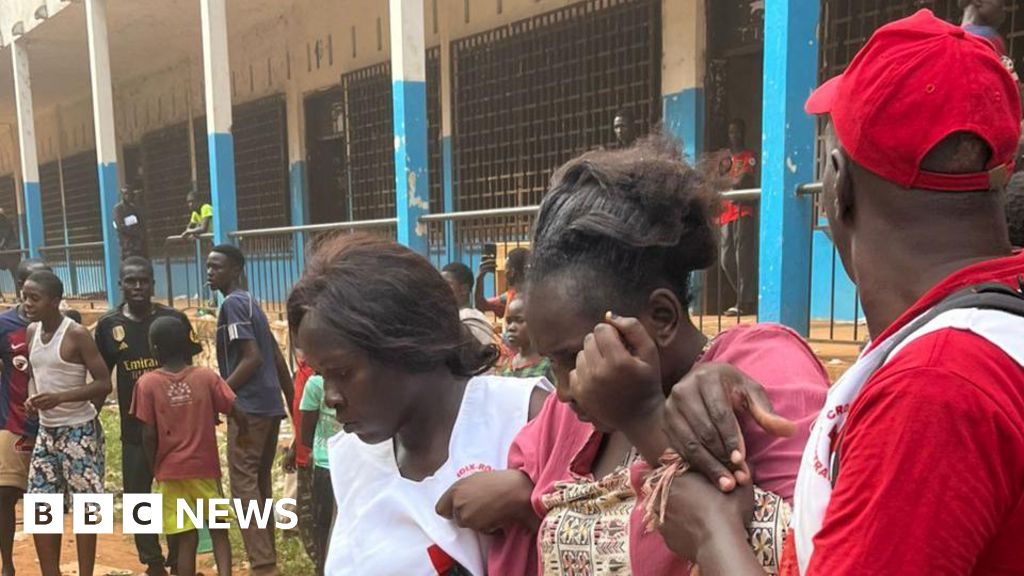Crush kills 29 pupils taking exams after blast in Central Africa

Crush Kills 29 Students During Exams in Central African Republic
Twenty-nine students have died in a crush in Bangui, the capital of the Central African Republic (CAR), after a nearby explosion triggered panic during high school final exams. Over 280 others were injured and are receiving treatment, according to hospital officials.
The incident occurred on Wednesday, the second day of the baccalaureate exams, at the Lycée Barthélémy Boganda, where almost 6,000 students from five different schools were gathered. Abel Assaye, a director at the Bangui community hospital, told the BBC that an explosion at an electricity transformer caused the deadly stampede.
Explosion Triggers Mass Panic
Local radio station Ndeke Luka reported that the "noise of the explosion, combined with smoke," created widespread alarm among the students. The education ministry stated that the explosion happened after power was restored to the transformer, which was located on the ground floor of the main building and had been undergoing repairs.
President Faustin-Archange Touadéra has declared a period of national mourning and ordered free medical treatment for all those injured. Education Minister Aurelien-Simplice Kongbelet-Zimgas expressed his condolences and announced the suspension of further exams.
A survivor recounted her experience to the BBC, stating, "I don't even remember what happened. We were in the exam room and when I heard a noise, I immediately fell into a daze. Since then, I have had a pain in my pelvis that is causing me a lot of problems."
Witness Accounts Detail Chaotic Scene
Another student, identified as Magloire, spoke to Radio France Internationale, describing a scene of chaos and desperation. "The students wanted to save their lives, and as they fled, they saw death because there were so many people and the door was really small. Not everyone could get out," he said.
A Nation Grappling with Instability
The tragedy underscores the fragility of life in the CAR, a nation plagued by political instability and ongoing security challenges. Government forces, supported by Russian mercenaries, are currently battling armed groups that seek to overthrow President Touadéra's government. This conflict has displaced hundreds of thousands of people and exacerbated existing humanitarian crises.
Historical Context: Persistent Conflict and Humanitarian Crisis
The Central African Republic has been mired in conflict for decades, marked by coups, rebellions, and widespread human rights abuses. The current crisis can be traced back to the 2013 ousting of then-President François Bozizé, which triggered a violent conflict between predominantly Christian and Muslim armed groups. Despite numerous peace agreements, lasting stability remains elusive. The presence of Russian mercenaries, often referred to as the Wagner Group, has further complicated the security landscape, drawing criticism from international human rights organizations.
Expert Perspective: The Impact on Education
Dr. Louisa Lombard, an anthropologist specializing in conflict and governance in Central Africa, highlights the devastating impact of such events on the country's already struggling education system. "The trauma experienced by these students and their families will have long-lasting consequences. Beyond the immediate loss, this tragedy will likely deter many from pursuing education, further hindering the country's development," she explained. "The lack of adequate infrastructure and safety measures in schools is a symptom of broader systemic issues, including underfunding and a lack of political will to prioritize education."
Current Context: Challenges in Ensuring Safety
The incident raises serious questions about safety protocols and emergency preparedness in schools across the CAR. The concentration of thousands of students in a single location for exams, coupled with inadequate evacuation plans, created a recipe for disaster. The government now faces immense pressure to conduct a thorough investigation and implement measures to prevent similar tragedies in the future.
The suspension of exams offers a temporary respite, but the long-term impact on the students' academic progress and mental well-being remains a significant concern. The CAR government, with support from international partners, must prioritize the provision of psychosocial support and ensure that students can safely resume their education as soon as possible.
The BBC has contacted the CAR government for further comment but has not yet received a response.
Originally sourced from: BBC News Africa
